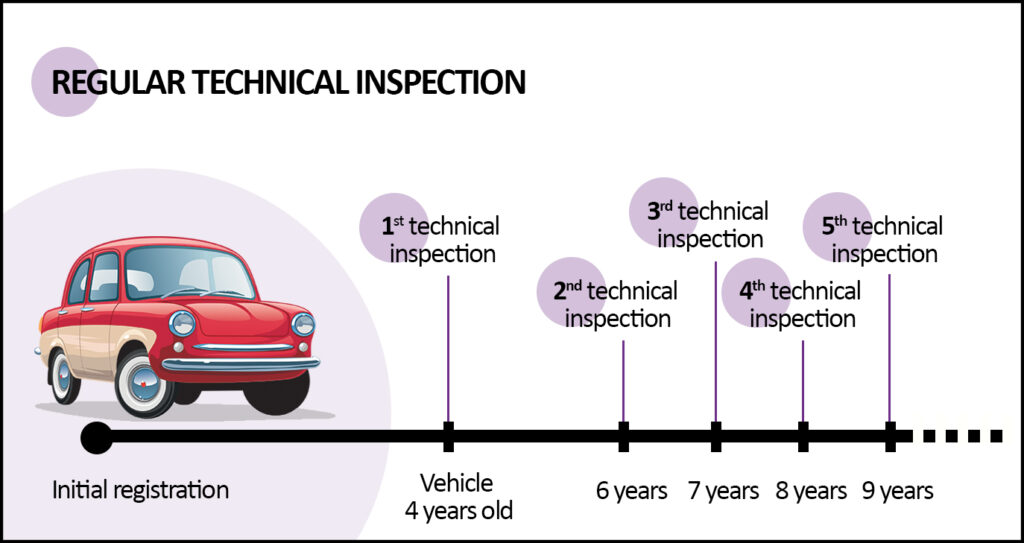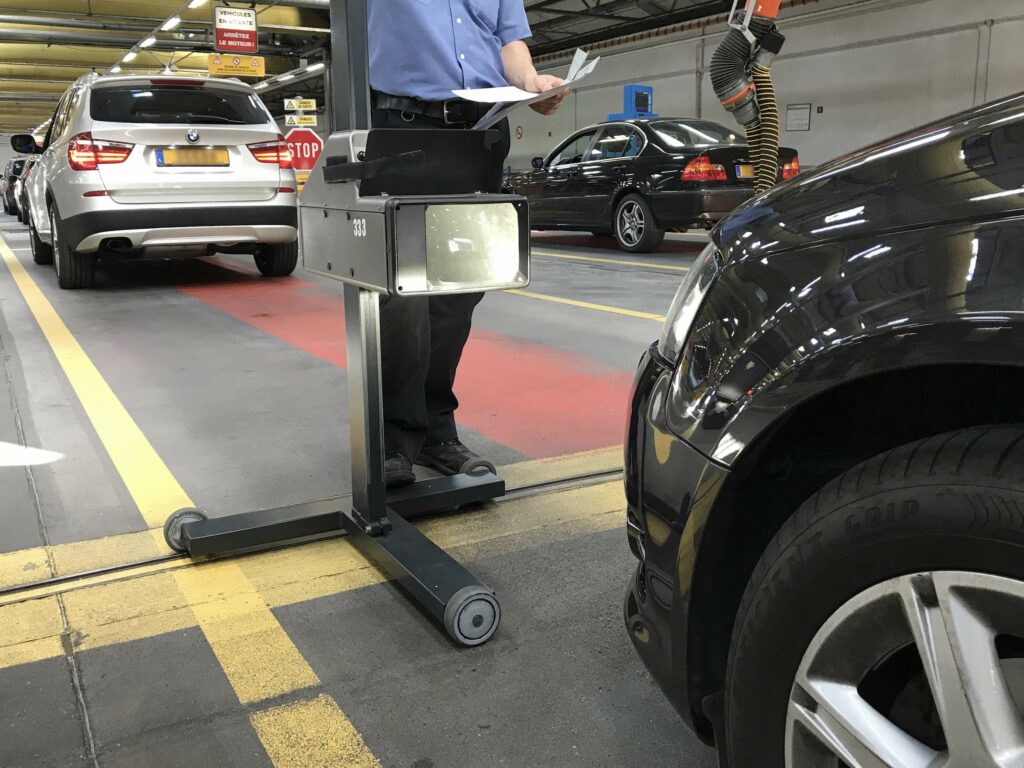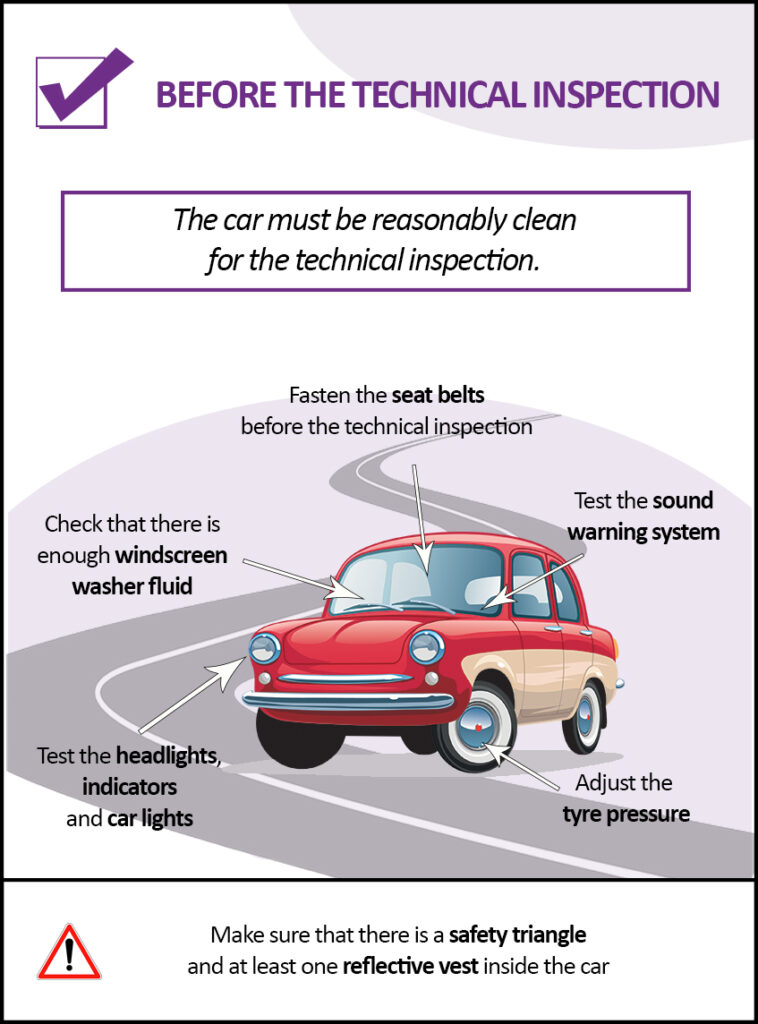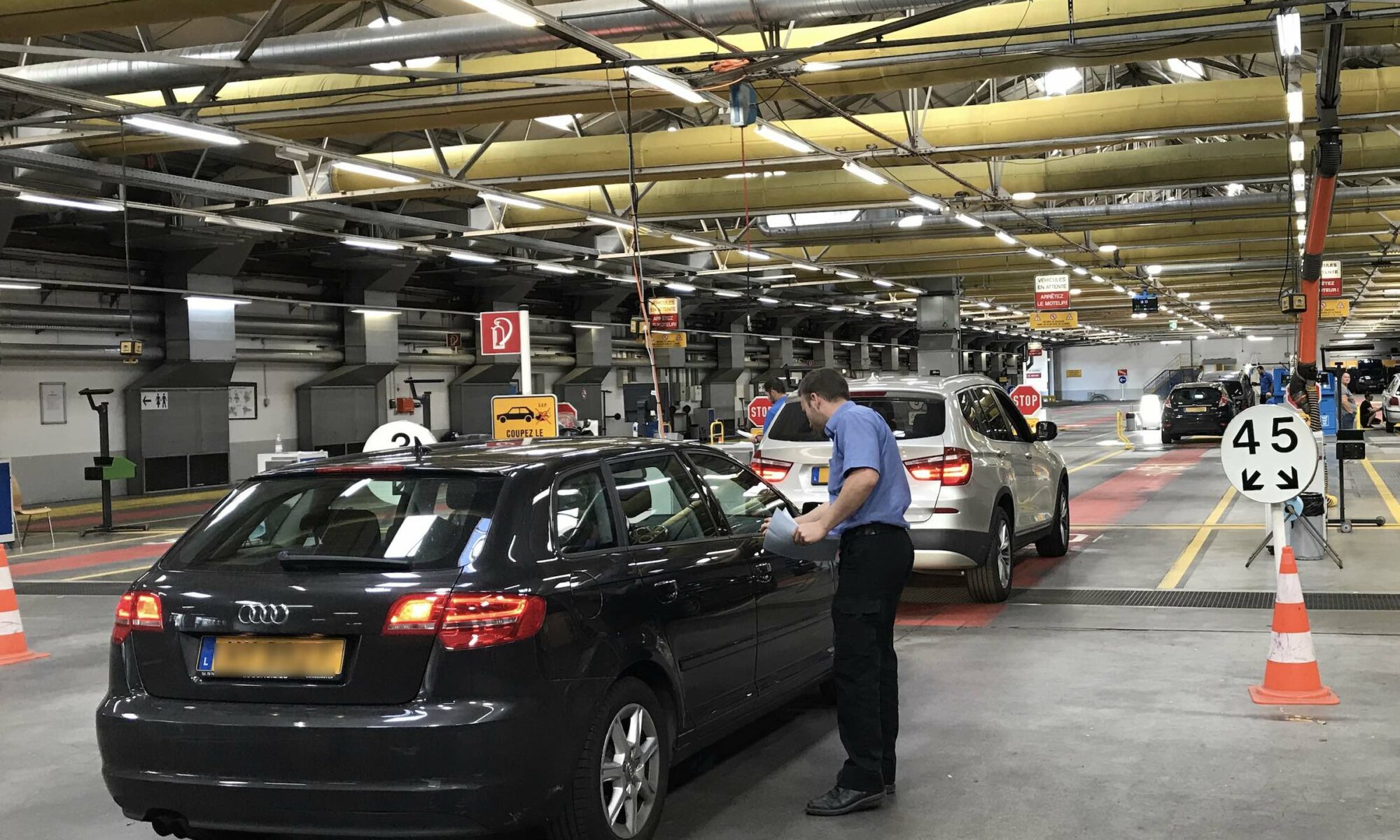Everything you need to know about technical inspections in Luxembourg
When is a technical inspection required in Luxembourg? Which vehicles does it apply to? How often is it required? How should you prepare for the appointment? What should you do if the car fails the technical inspection? myLIFE answers your major questions.
Charlotte has owned her car for four years. She has just received a letter asking her to make an appointment at a technical inspection centre. This is her first technical inspection in Luxembourg and she is wondering about the procedure for the appointment: which documents she should take, which tests are carried out, etc. Let’s have a quick look at her major questions.
Why has Charlotte been asked to make an appointment for a technical inspection?
The technical inspection is compulsory in Luxembourg. It ensures that the vehicle is in good working order and has been properly maintained, and that it complies with technical and environmental regulations. The aim is to ensure that the car is roadworthy and can be driven safely.
Charlotte has been asked to make an appointment for her first technical inspection and will have to follow a precise timetable for subsequent inspections.
How often is the technical inspection required?
Although most motor vehicles registered in Luxembourg have to pass a technical inspection, the timing of inspections varies depending on the type of vehicle.
Cars, motorbikes and trailers (with a maximum authorised weight of 750 kg to 3.5 tonnes) are subject to a first technical inspection four years after their initial registration. The second inspection is two years later, and then every subsequent year. This is called the regular technical inspection.

NB: in contrast to other European countries, the technical inspection is obligatory for motorbikes of over 50 cc in Luxembourg.
There are also annual technical inspections for: heavy goods vehicles, trailers of over 3.5 tonnes, trailers for transporting passengers, and vans and vehicles with less than nine seats such as taxis, ambulances or rental vehicles.
Useful info: a reminder for the regular technical inspection is sent to anyone concerned around eight weeks before due. This is exactly the letter that Charlotte has received!

In Luxembourg, a technical inspection is required to register a vehicle that is over four years old.
Which other situations require a technical inspection?
In addition to regular inspections, Charlotte will have to take her car for a new technical inspection in the following situations:
-
- if the technical characteristics of her vehicle have been changed (increase in the car’s power, installation of a bodywork kit, etc.);
- if the chassis has been repaired or transformed;
- after an accident requiring major repairs to the wheels, suspension, steering, brakes, etc.;
- upon the specific instructions of a vehicle appraiser or the police.
Useful info: in Luxembourg, a technical inspection is also required to register a vehicle that is over four years old. If Charlotte decides to purchase a second hand car, she must remember to ask the seller for a valid technical inspection certificate.
→ For a foreign vehicle, if the technical inspection was carried out in the EU or Switzerland, it remains valid in Luxembourg providing technical inspections have been carried out at the same frequency as is required in Luxembourg.
Vehicles registered in Luxembourg that are exempt from the technical inspection require a valid certificate of compliance.
Which vehicles do not need a technical inspection?
In Luxembourg, the technical inspection is not required for small trailers that are not intended for passenger transportation (with a maximum authorised weight of less than 750 kg), mopeds and light quadricycles, motorised vehicles that cannot travel at over 25 km per hour, some tractors*, and historic vehicles registered for the first time before 1 January 1950. Charlotte does not need to worry about a technical inspection for the little 50 cc scooter that she uses to pop into town!
NB: vehicles registered in Luxembourg that are exempt from the technical inspection require a valid certificate of compliance that can be obtained from the SNCA (Société Nationale de Circulation Automobile) upon registration.
Where can the technical inspection be carried out and what does it cost?
After receiving the reminder, Charlotte must make an appointment within eight weeks at a technical inspection centre authorised by Luxembourg’s Ministry of Sustainable Development and Infrastructure. The cost of the inspection will depend on the type of vehicle and where it is carried out.
For example, a technical inspection carried out in one of the SNCT centres costs EUR 53.60 for a car with a conventional or hybrid engine, and EUR 40 for a motorbike (prices at January 2020).
Charlotte can choose from the following organisations to carry out the technical inspection:
-
- the Société Nationale de Contrôle Technique (SNCT) in Sandweiler, Wilwerwiltz or Esch-sur-Alzette;
- DEKRA in Bertrange;
- LU KS in Lorentzweiler;
- one of the SNCT’s partner garages (prices vary by garage).
Useful info: Charlotte should make an appointment quickly. Depending on which organisation she chooses and the time of year, an appointment may not be available for a few weeks.
Which documents are required for the technical inspection?
Charlotte will have to provide several documents:
-
- the motor insurance certificate;
- the grey “Part 1” car registration certificate;
- a valid tax disc;
- the vehicle’s European certificate of conformity (for all vehicles registered after 1 February 2016);
- the most recent technical inspection certificate if there is one – Charlotte will not have to present this as this is the car’s first technical inspection.
How to prepare for the appointment?
Before going to her appointment, Charlotte can carry out a couple of basic checks on the state of her little city car to improve her chances of passing the technical inspection first time. She can carry out the checks herself, or go to a garage.

NB: if there have been any technical modifications to the vehicle, Charlotte must check with the SNCA whether the changes require a specific report on the registration certificate.
What is checked during the technical inspection?
Many aspects will be inspected in order to check the general state of Charlotte’s car and to ensure that all technical equipment works properly: bodywork, chassis, steering, axles, wheels, tyres, suspension, brakes, headlights, electrical equipment, noise levels, exhaust fumes, etc. It’s a proper “health and safety” check-up!
If the car fails its technical inspection, it can no longer be driven on the road.
The technical inspection can be passed, marked as pending, or failed
After all checks are carried out, there are three possible outcomes.
-
- If there are no anomalies, or only minor faults, Charlotte’s car will pass the technical inspection and, ideally, she will have to have any potential issues that were detected put right.
- If the checks highlight any major faults, she will be given a certificate for a limited period of time. She will have to have the car repaired or made compliant, and then pass an additional technical inspection (for which she will have to make an appointment and pay) within 28 days.
- If the inspection reveals any critical faults, Charlotte’s car will fail its technical inspection and will no longer be authorised on the road.
Happily, Charlotte’s car meets the criteria and successfully passes its technical inspection. Phew! She has therefore received a certificate that is valid for two years, until her vehicle is six years old. After that, a technical inspection is required every year.
This is a good opportunity for Charlotte to find out the best way to maintain her little city car in order to keep it in good condition for as long as possible. For this, she can consult the information on car maintenance in Luxembourg.
* Tractors and vehicles limited to 40 km per hour which weigh over 600 kg when empty and are not intended to exceed 25 km per hour when pulling one or several other vehicles.


 Mortgage
Mortgage Personal loan
Personal loan Savings
Savings